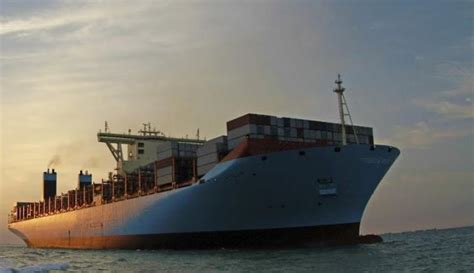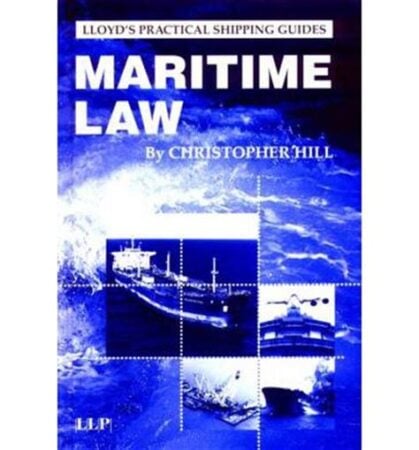
- Maritime Laws in Nigeria: A Comprehensive Guide
- Section 1: Pillars of Maritime Laws in Nigeria
- Section 2: Maritime Safety and Environmental Protection
- Section 3: Maritime Security and Dispute Resolution
- Section 4: Table of Maritime Laws in Nigeria
- Section 5: Conclusion
-
FAQ about Maritime Laws in Nigeria
- What are the legal frameworks governing maritime activities in Nigeria?
- What is the purpose of the Merchant Shipping Act?
- What is the role of the Nigerian Maritime Administration and Safety Agency (NIMASA)?
- What does the Cabotage Act seek to achieve?
- What are the implications of the United Nations Convention on the Law of the Sea (UNCLOS) for Nigeria?
- What are the common offenses under maritime laws in Nigeria?
- What are the penalties for violating maritime laws in Nigeria?
- How can individuals and organizations stay compliant with maritime laws in Nigeria?
- Where can I find more information about maritime laws in Nigeria?
- Is it advisable to seek legal counsel before engaging in maritime activities in Nigeria?
Maritime Laws in Nigeria: A Comprehensive Guide

Introduction
Greetings, readers! Welcome to our in-depth exploration of the legal framework governing maritime activities in Nigeria. Understanding these maritime laws is crucial for anyone involved in the shipping, fishing, or other maritime industries. In this comprehensive guide, we will delve into the various aspects of these laws, their implications, and their impact on the maritime sector.
Section 1: Pillars of Maritime Laws in Nigeria
Historical Foundations
Nigeria’s maritime laws have a rich history, influenced by both domestic and international factors. The country’s strategic location along the Gulf of Guinea and its extensive coastline have necessitated a robust legal framework to regulate maritime activities. Nigeria became a member of the International Maritime Organization (IMO) in 1963, further shaping its maritime laws in line with international standards.
Key Legislations
The cornerstone of maritime laws in Nigeria is the Merchant Shipping Act of 1990. This comprehensive legislation covers a wide range of maritime issues, including ship registration, navigation safety, pollution prevention, and marine insurance. Other important legislations include the Piracy and Armed Robbery at Sea Act of 2019, the Marine Pollution Act of 1988, and the Nigerian Maritime Administration and Safety Agency (NIMASA) Act of 2007.
Section 2: Maritime Safety and Environmental Protection
Ship Safety and Navigation
The Merchant Shipping Act and other regulations establish strict safety standards for ships operating in Nigerian waters. These regulations include requirements for ship design, construction, equipment, and maintenance. The Nigerian Maritime Administration and Safety Agency (NIMASA) is responsible for enforcing these standards and conducting regular inspections of ships.
Pollution Control
Nigeria’s maritime laws emphasize the protection of the marine environment from pollution. The Marine Pollution Act prohibits the discharge of harmful substances into Nigerian waters and mandates ships to comply with international pollution prevention regulations. NIMASA also monitors and enforces these regulations to minimize the impact of maritime activities on the coastal and marine ecosystems.
Section 3: Maritime Security and Dispute Resolution
Anti-Piracy Measures
The Piracy and Armed Robbery at Sea Act is a critical piece of legislation that addresses the threat of piracy in Nigerian waters. The act criminalizes piracy, provides for the arrest and prosecution of pirates, and allows for the use of force to combat piracy. Nigeria also collaborates with regional and international organizations to enhance anti-piracy measures.
Dispute Resolution
Maritime disputes can occur between ship owners, cargo owners, and other parties involved in maritime activities. The Nigerian Maritime Arbitration Centre (NMARAC) provides a specialized forum for the resolution of maritime disputes. NMARAC offers arbitration and mediation services to facilitate the settlement of disputes in a timely and efficient manner.
Section 4: Table of Maritime Laws in Nigeria
| Legislation | Key Provisions |
|---|---|
| Merchant Shipping Act, 1990 | Regulates ship registration, safety standards, and marine insurance |
| Piracy and Armed Robbery at Sea Act, 2019 | Criminalizes piracy and provides for anti-piracy measures |
| Marine Pollution Act, 1988 | Prohibits pollution discharge and mandates pollution prevention measures |
| NIMASA Act, 2007 | Establishes NIMASA and defines its functions in maritime administration and safety |
| Admiralty Jurisdiction Act, 2017 | Regulates admiralty jurisdiction and provides for the enforcement of maritime claims |
| Maritime Operations Coordinating Board (MOCOB) Act, 2018 | Establishes MOCOB to coordinate maritime security operations and promote inter-agency collaboration |
Section 5: Conclusion
Maritime laws in Nigeria are essential for ensuring the safety, security, and sustainability of maritime activities. They provide a robust legal framework that governs everything from ship safety to environmental protection and dispute resolution. By understanding and adhering to these laws, stakeholders in the maritime sector can contribute to the orderly and responsible development of Nigeria’s maritime industry.
Further Reading
- Nigerian Maritime Administration and Safety Agency (NIMASA)
- Maritime Operations Coordinating Board (MOCOB)
FAQ about Maritime Laws in Nigeria
What are the legal frameworks governing maritime activities in Nigeria?
- Answer: Merchant Shipping Act, Nigerian Maritime Administration and Safety Agency Act (NIMASA Act), Cabotage Act, and other relevant international conventions and treaties.
What is the purpose of the Merchant Shipping Act?
- Answer: To regulate the safety, registration, manning, and operation of merchant ships in Nigerian waters and beyond.
What is the role of the Nigerian Maritime Administration and Safety Agency (NIMASA)?
- Answer: To coordinate and enforce maritime safety regulations, promote the development of the maritime industry, and protect the Nigerian maritime environment.
What does the Cabotage Act seek to achieve?
- Answer: To reserve certain maritime activities, such as coastal shipping, for Nigerian vessels and operators, thereby promoting indigenous participation in the industry.
What are the implications of the United Nations Convention on the Law of the Sea (UNCLOS) for Nigeria?
- Answer: UNCLOS provides Nigeria with a comprehensive legal framework for managing its maritime zones, including territorial waters, exclusive economic zone, and continental shelf.
What are the common offenses under maritime laws in Nigeria?
- Answer: Illegal fishing, smuggling, piracy, oil bunkering, and pollution.
What are the penalties for violating maritime laws in Nigeria?
- Answer: Fines, imprisonment, seizure of vessels, or a combination thereof, depending on the severity of the offense.
How can individuals and organizations stay compliant with maritime laws in Nigeria?
- Answer: By registering vessels with NIMASA, obtaining necessary licenses and permits, adhering to safety regulations, and reporting any suspected violations.
Where can I find more information about maritime laws in Nigeria?
- Answer: NIMASA website, Nigerian Ports Authority (NPA) website, and reputable legal resources.
Is it advisable to seek legal counsel before engaging in maritime activities in Nigeria?
- Answer: Yes, it is highly recommended to consult with experienced maritime lawyers to ensure full understanding and compliance with the complex legal landscape.




